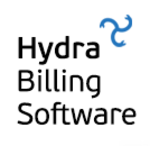Description

Hydra Billing

Albert
Comprehensive Overview: Hydra Billing vs Albert
As of my last update, Hydra Billing is a company that provides billing solutions, typically focusing on telecommunications and utility sectors. Let's address each component of your request:
a) Primary Functions and Target Markets
Primary Functions:
- Billing Management: Hydra Billing offers comprehensive billing solutions that automate the billing process, handle complex billing cycles, and ensure accurate invoicing.
- Customer Management: It includes features for managing customer data, tracking usage, and supporting customer queries.
- Revenue Assurance: Hydra Billing provides tools to ensure that the revenue generated is accurate and that there are no revenue leakages.
- Reporting & Analytics: Advanced reporting features help businesses understand their financial data and make informed decisions.
- Integration Capabilities: The system can integrate with various existing systems like CRM, ERP, and payment gateways.
- Scalability: Hydra Billing systems are designed to scale with the growth of a business, making it suitable for small-to-large enterprises.
Target Markets:
- Telecommunications: Companies that need to manage complex billing scenarios like multiple service plans, usage-based billing, and subscription models.
- Utilities: Power, water, and gas utilities that require efficient billing systems for varied consumption patterns.
- Subscription-Based Businesses: Companies that operate on a subscription model requiring regular billing cycles.
- ISPs and Data Services: Internet Service Providers and data service companies needing efficient billing and customer management tools.
b) Market Share and User Base
Hydra Billing is considered a significant player within its niche markets, particularly communications and utilities. However, specific details on market share and user base can vary based on a range of factors including region and competition. Generally, the company serves a substantial number of telco operators and utility providers, but exhaustive market share data might require specific industry reports or proprietary data.
c) Key Differentiating Factors
- Customization and Flexibility: Hydra Billing is noted for its ability to cater to the unique requirements of different industries and companies, allowing highly customized billing solutions that cater to specific business needs.
- Robust Integration: The platform provides strong integration capabilities, making it easy for companies to integrate Hydra into their existing infrastructure.
- Scalability: Unlike some solutions that cater solely to small or large enterprises, Hydra Billing offers scalability that suits companies of varying sizes which is crucial for businesses that anticipate growth.
- Industry Focused Solutions: Its strong focus on telecommunications and utilities gives it a competitive edge in industries requiring complex billing structures.
- Support and Training: Hydra Billing is known for providing strong customer support and extensive training resources which can be a crucial factor in successful implementation and use of the platform.
Keep in mind that market dynamics and product features can change, and additional research or direct inquiries to Hydra Billing may provide updated information.
Contact Info

Year founded :
Not Available
Not Available
Not Available
Bulgaria
http://www.linkedin.com/company/hydra-billing-solutions

Year founded :
2015
Not Available
Not Available
Sweden
Not Available
Feature Similarity Breakdown: Hydra Billing, Albert
As of my last update, Hydra Billing and Albert do not appear to be directly comparable products. I might be limited because there might be newer developments or perhaps there might be some confusion with the product names. However, I will do my best to address your request based on the general understanding and assumptions:
a) Core Features in Common
If we assume that Hydra Billing and Albert are software solutions for billing and financial management:
- Invoicing: Both platforms likely provide the ability to create, send, and manage invoices.
- Payment Processing: They probably offer some form of integration with payment gateways to facilitate receiving payments.
- Reporting and Analytics: Common features would include generating financial reports, providing insights into revenue, expenses, and customer payment behaviors.
- Customer Management: Both might have features to manage customer profiles, track their billing history and preferences.
- Automation: Automated reminders, recurring billing, and streamlined payment processes are standard in many billing systems.
b) User Interface Comparison
- Design Aesthetic: The user interface (UI) designs can be vastly different:
- Hydra Billing: Typically, billing systems might focus on a more utilitarian design that highlights functionality and efficiency, with dashboards consolidating financial actions and reports.
- Albert: If Albert refers to a personal finance app, it might be optimized for mobile use, focusing on sleek design and intuitive navigation, using more graphical elements to simplify complex financial data.
- Ease of Use: Both product interfaces might emphasize ease of use but tailored towards their primary user base:
- Hydra Billing's UI may prioritize detailed workflows for business users.
- Albert might offer a more streamlined and user-friendly experience for individual users.
c) Unique Features
-
Hydra Billing:
- Advanced Customization: Enterprise-grade systems often feature more extensive customization options, integrations with other business software, and scalability for large organizations.
- Industry-Specific Solutions: It may have tailored features for specific industries, such as telecommunications or utilities.
-
Albert:
- Personal Finance Management: If Albert refers to the app focusing on personal finance, it may offer unique features like AI-driven budgeting advice, investment tracking, or real-time expense categorization.
- Mobile-First Experience: Likely optimized for smartphones, with additional features like financial tips, saving goals, or cash advance options.
Note: Please verify the context around "Albert" and "Hydra Billing" to ensure precision. If either product has unique industry positioning not covered here, it might be beneficial to check their respective websites or detailed product comparisons for more current information.
Features

Not Available

Not Available
Best Fit Use Cases: Hydra Billing, Albert
Hydra Billing and Albert serve distinct purposes within the realm of billing and financial management, each suited to particular types of businesses and projects. Here’s a breakdown to help identify the best fit use cases for each:
Hydra Billing
a) For what types of businesses or projects is Hydra Billing the best choice?
Hydra Billing is particularly well-suited for businesses or projects that have complex, high-volume billing requirements. The key use cases include:
-
Telecommunications and Utilities: Companies in these industries often deal with metered usage and need to accommodate various service plans, discounts, and intricate billing cycles.
-
Subscription-Based Models: Businesses offering subscription services, like SaaS companies, benefit from Hydra Billing’s ability to handle recurring invoices and manage trial periods, renewals, and upgrades smoothly.
-
Large Enterprises: Organizations with multi-tiered pricing structures and diverse product offerings can utilize Hydra Billing’s extensive configuration options to manage intricate billing logic efficiently.
-
Finance and Insurance: These sectors often require flexible billing mechanisms to handle diverse policyholder needs, making Hydra Billing an ideal choice.
d) Catering to Different Industry Verticals or Company Sizes:
Hydra Billing is robust enough to cater to a variety of industry verticals that require detailed and customizable billing processes. It scales well for medium to large enterprises that need detailed reporting, support for large transaction volumes, and seamless integrations with other enterprise systems.
Albert
b) In what scenarios would Albert be the preferred option?
Albert is best suited for simple, straightforward financial management needs, particularly where ease of use and automated insights are priorities. It excels in scenarios such as:
-
Small Businesses and Freelancers: These users benefit from Albert’s straightforward approach to expense tracking, budgeting, and invoicing without the excess complexity that large enterprises might require.
-
Personal Finance Management: Individuals seeking to manage their personal financial health with budgeting, saving goals, and investment insights find Albert particularly useful.
-
Simplified Accounting Needs: Businesses or professionals with minimalistic accounting requirements where automated insights into income, spending, and savings are more valuable than comprehensive billing solutions.
d) Catering to Different Industry Verticals or Company Sizes:
Albert is primarily geared toward small businesses, individual users, and freelancers, offering tools that simplify financial oversight without needing extensive customizations. It’s ideal for users who prioritize ease of use over complexity and want quick insights into their financial status.
Conclusion
While both Hydra Billing and Albert serve billing or financial management needs, they cater to different market segments based on business complexity, scale, and user requirements. Hydra Billing is optimal for complex, high-volume operations typical in industries like telecommunications, utilities, and insurance, whereas Albert is a better fit for simpler financial management in small businesses and personal finance scenarios.
Pricing

Pricing Not Available

Pricing Not Available
Metrics History
Metrics History
Comparing teamSize across companies
Conclusion & Final Verdict: Hydra Billing vs Albert
To provide a conclusion and final verdict on Hydra Billing and Albert, let's break down the evaluation based on the criteria you've provided:
a) Considering all factors, which product offers the best overall value?
Determining the best overall value between Hydra Billing and Albert depends largely on the specific needs and priorities of the user or organization. If your primary requirement is comprehensive billing and invoicing features with customization and scalability, Hydra Billing might offer the best value. On the other hand, if your focus is on personal financial management with ease of use and intuitive budgeting tools, Albert could be the better choice.
b) Pros and Cons of Choosing Each Product
Hydra Billing
-
Pros:
- Robust Billing Solutions: Offers comprehensive billing and invoicing features suitable for businesses that require detailed billing cycles.
- Customization and Scalability: Highly customizable, which is beneficial for businesses looking for tailored solutions that can scale.
- Integration Capabilities: Can integrate with various third-party applications, enhancing its utility for businesses needing synchronized operations.
-
Cons:
- Complexity: The wide array of features might result in a steeper learning curve.
- Cost: May require a higher upfront investment compared to simpler solutions, especially for smaller businesses.
Albert
-
Pros:
- User-Friendly Interface: Designed for personal finance management, offering an intuitive and easy-to-use platform.
- Budgeting Tools: Provides excellent budgeting and saving features, ideal for individual users.
- Cost-Effective: Generally less expensive and offers significant value for personal finance needs.
-
Cons:
- Limited Business Features: Not designed for business billing or complex invoicing requirements.
- Scalability: Less adaptable for larger-scale financial management or complex organizational needs.
c) Specific Recommendations for Users
-
Business-Focused Users:
- Choose Hydra Billing if your primary needs are related to advanced billing processes, the ability to customize billing infrastructure, and if you require integration with other business software. Ensure that your team is prepared for a potentially steeper learning curve and the additional cost involved in deploying a comprehensive billing system.
-
Individual or Personal Finance Users:
- Opt for Albert if your main concern is managing personal finances efficiently. Albert is best utilized by users who want straightforward budgeting tools and cost-effective solutions without the need for intricate billing features.
-
Consider Hybrid Needs:
- For users or organizations that may require features from both domains (like business owners who need strong personal finance tools alongside business billing capabilities), consider whether you might need both products or explore other solutions that might integrate these functionalities.
Ultimately, the decision between Hydra Billing and Albert depends on whether your needs align more closely with business billing requirements or personal financial management. Evaluating your specific use case against these strengths and weaknesses will guide you toward the optimal choice.
Add to compare
Add similar companies




